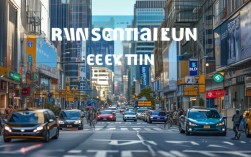History Period in IELTS Speaking
When preparing for the IELTS Speaking test, discussing "history period" is a common topic that allows candidates to showcase their vocabulary, grammar, and ability to structure coherent responses. Whether describing a historical era, a personal connection to the past, or the significance of historical events, this theme tests a candidate’s ability to articulate ideas clearly and engage the examiner with meaningful content. Below, we explore how to approach this topic effectively, including key vocabulary, sample answers, and strategies for success.

Understanding the Topic
The term "history period" refers to a distinct phase in history characterized by specific events, cultural trends, or societal changes. In IELTS Speaking, this topic may appear in Part 1 (general questions), Part 2 (long turn), or Part 3 (discussion). For example:
- Part 1: "Do you enjoy learning about history?"
- Part 2: "Describe a historical period you find interesting."
- Part 3: "How do historical periods influence modern society?"
To excel, candidates should balance factual accuracy with personal opinion, using a mix of broad knowledge and specific examples.
Key Vocabulary and Phrases
A strong vocabulary is essential for discussing history. Here are some useful terms:
| Category | Examples |
|---|---|
| Time Periods | Ancient, medieval, Renaissance, Industrial Revolution, modern era |
| Events | Revolution, war, discovery, invention, reform |
| Figures | Emperor, leader, philosopher, explorer, reformer |
| Impact | Transformative, influential, pivotal, significant, far-reaching |
| Verbs | Shape, influence, revolutionize, commemorate, analyze |
For instance, instead of saying "a long time ago," use "during the medieval period" or "in the 18th century."
Sample Answer for Part 2
Cue Card: "Describe a historical period you find interesting."
One historical period that fascinates me is the Renaissance, which spanned roughly from the 14th to the 17th century. Often called the "rebirth" of learning and culture, this era marked a profound shift in European history. What captivates me most is its emphasis on humanism, art, and scientific inquiry.
The Renaissance began in Italy, cities like Florence and Venice becoming hubs of creativity. Thinkers such as Leonardo da Vinci and Michelangelo revolutionized art, blending realism with emotion. Da Vinci’s Mona Lisa and Michelangelo’s David are timeless examples of this period’s brilliance. Beyond art, the Renaissance saw advancements in science—Copernicus proposed heliocentrism, challenging the geocentric view. Politically, figures like Machiavelli explored new governance ideas in The Prince.
This period’s legacy is undeniable. It laid the groundwork for the Enlightenment and modern democracy. For me, the Renaissance symbolizes the power of human curiosity and innovation, reminding us that progress often emerges from questioning traditions.
Tips for Success
- Structure Your Answer: Use the PEEL method (Point, Example, Explanation, Link) for coherence.
- Personalize: Add personal connections, e.g., "I visited the Uffizi Gallery in Florence, where I saw Renaissance masterpieces."
- Avoid Generalizations: Instead of "People lived simply," say "Daily life was centered around guilds and patronage."
- Practice Fluency: Record yourself to improve pacing and reduce filler words.
FAQs
Q1: How can I improve my historical vocabulary for IELTS Speaking?
A1: Start by reading articles or books on historical topics (e.g., A Short History of Nearly Everything by Bill Bryson). Create flashcards for new words and use them in sentences. Watching documentaries like Civilization by Kenneth Clark can also expose you to descriptive language. Additionally, practice using terms like "epoch," "era," and "dynasty" in context to sound more natural.
Q2: Is it necessary to memorize specific dates for IELTS Speaking?
A2: No, memorizing dates is not required. The focus is on your ability to discuss ideas, not recall facts. However, mentioning approximate timeframes (e.g., "late 18th century") can add credibility. Prioritize understanding the significance of events over rote learning. For example, explaining the impact of the Industrial Revolution is more valuable than stating it began in 1760.
By combining historical knowledge with clear expression, you can confidently tackle this topic in the IELTS Speaking test. Remember, the goal is to engage the examiner with insightful, well-organized responses that reflect your ability to communicate effectively.











